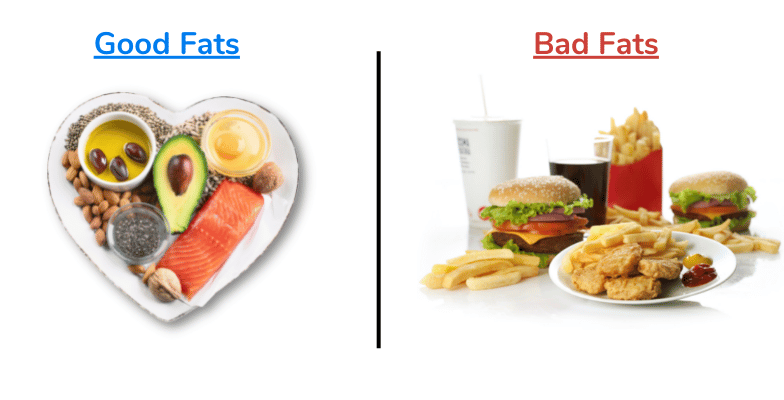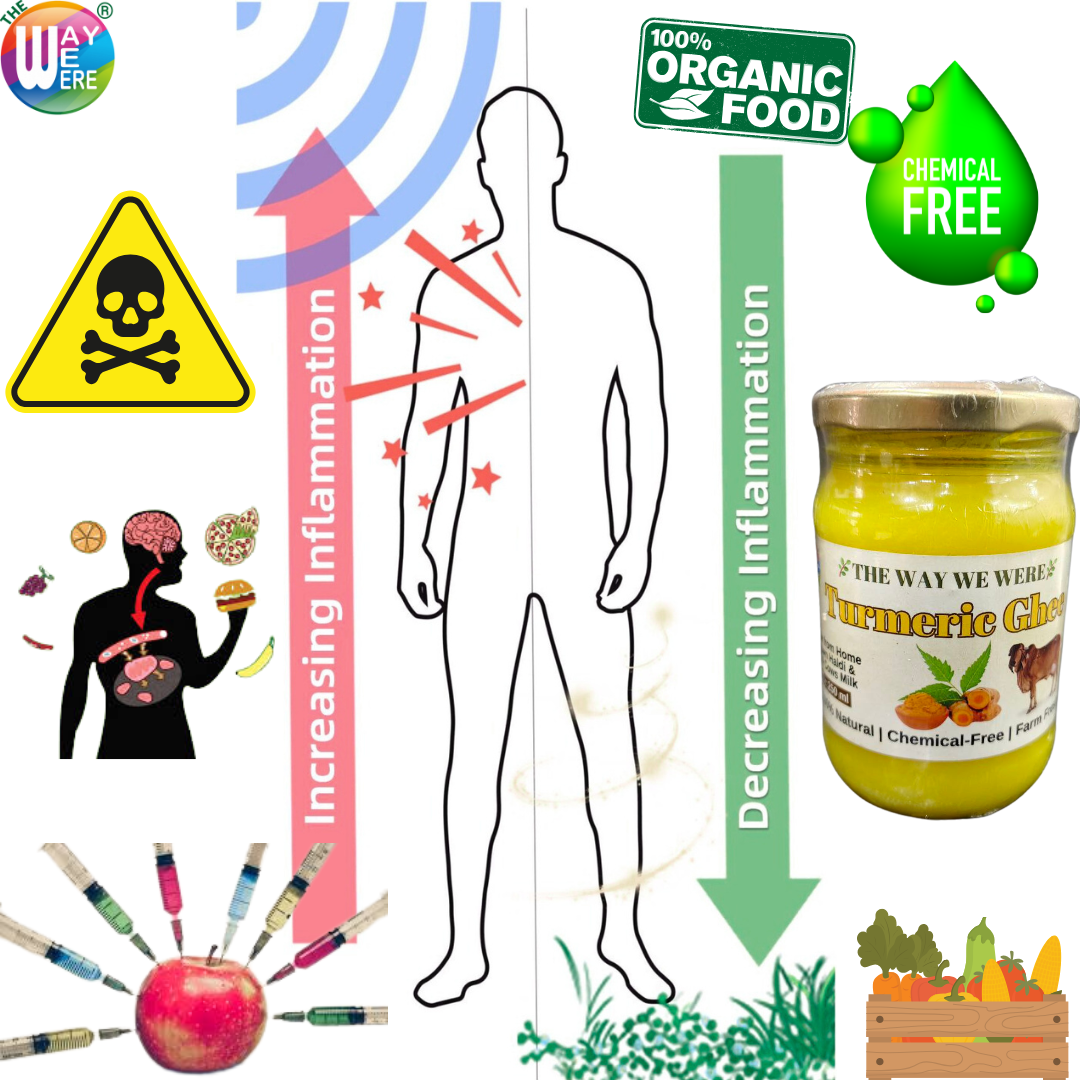In today’s fast-paced world of fad diets and packaged foods, fat often gets a bad reputation. But let’s bust the myth: fat isn’t your enemy - it’s a vital nutrient that your body needs to function, heal, and thrive. The key is knowing the difference between bad fat vs good fat and choosing the right sources.

In this blog, we’ll decode the role of fat in our diet, compare cow fat vs buffalo fat vs vegetable oil fat, and explore the importance of pure, natural fats like desi ghee and cold-pressed oils.
Why Fat is Important in Your Diet
Fats are one of the three essential macronutrients. They:
- Provide long-lasting energy
- Support brain and hormonal health
- Help absorb fat-soluble vitamins (A, D, E, K)
- Reduce inflammation
- Promote healthy skin and joints

But all fats aren’t created equal. Let’s look at what makes a fat good or bad.
Bad Fats - The Ones to Avoid
Hydrogenated fats, refined vegetable oils, and trans fats are considered bad because they are:
- Chemically processed
- Inflammatory in nature
- Stripped of nutrients
- Often reused in commercial cooking
Hydrogenated bakery fats and margarine - commonly used in cookies, pastries, and fried snacks - cost as low as ₹120/kg but wreak havoc on your body, increasing the risk of obesity, heart disease, and lifestyle disorders.
Good Fats - The Fats You Should Eat More Of
Good fats come from natural sources. These include:
- Desi cow ghee
- Cold-pressed oils (like mustard, peanut, sesame, sunflower)
- Nuts and seeds
- Coconut oil
- Fat from A2 milk
They are anti-inflammatory, nutrient-dense, and promote overall health.

Let’s now compare three common fat sources: cow milk fat, buffalo milk fat, and vegetable oil fat.
Cow Fat (Desi Cow Ghee) - Light, Bioavailable & Anti-inflammatory
Desi cow ghee, especially from A2 Desi Gir Cow’s milk, is considered one of the best dietary fats. Why?
- Melting point: 37°C, almost the same as human body temperature (37.1°C), making it easily digestible and bioavailable.
- Rich in beta-carotenes, natural antioxidants that neutralize free radicals and reduce inflammation.
- Contains short-chain fatty acids that boost gut health.
- Supports brain development and strengthens immunity.

Explore our pure Desi Gir Cow Ghee, Haldi Ghee for anti-inflammatory healing, and Tulsi Ghee Nasal Drops for respiratory wellness.
Buffalo Fat - Dense, Heavier & Less Digestible
Buffalo milk and ghee are richer in fat content, but not always better.
- Melting point: 40°C, higher than human body temperature, making it harder to digest.
- It is heavier and cooling in nature - not suitable for everyone, especially children or people with weaker digestion.
- Often overconsumed due to its creamy texture but should be used sparingly.
Vegetable Oil Fat - The Modern Health Hazard
Refined vegetable oils are present in most modern kitchens, but they are far from healthy.
- Highly processed and chemically refined
- Devoid of any natural antioxidants
- High in omega-6 fats, which cause chronic inflammation
- Not stable under high heat, producing toxic compounds
Replace these with our cold-pressed range:
✅ Mustard Oil
✅ Peanut Oil
✅ Sesame Oil
✅ Sunflower Oil
All are naturally extracted and chemical-free.
The Role of A2 Milk & Fresh Yellow Butter
A2 Milk from Desi Gir cows is easier to digest and free from harmful A1 beta-casein protein found in most commercial milk. It supports better gut health and helps the body absorb fats better.

Don’t forget to include Fresh Yellow Butter in your diet - it’s rich in natural saturated fats, vitamin K2, and gives your meals that wholesome, nostalgic taste.
💡 How to Add Pure Fats to Your Diet
- Use Desi cow ghee in your daily cooking
- Drizzle cold-pressed oils on salads or use for tadka
- Avoid refined or hydrogenated oils
- Include a spoonful of ghee in your dal, roti, or khichdi
- Drink A2 milk regularly or use yellow butter with breakfast
✨ Final Thoughts - Choose Pure, Live Pure
Your body doesn’t just need any fat - it needs good, clean, natural fat to function optimally.
By understanding the melting points, digestibility, and nutritional profile of different fats, you can make informed choices that heal, not harm.
Ditch the hydrogenated traps and switch to traditional fats that our ancestors thrived on. Your body, skin, mind - and even your taste buds - will thank you.
Stay rooted. Eat clean. Live the way we were.
The Way We Were 🌿


